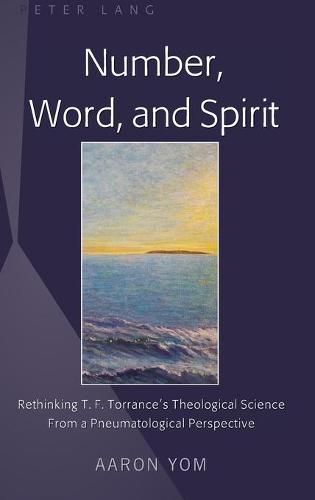Readings Newsletter
Become a Readings Member to make your shopping experience even easier.
Sign in or sign up for free!
You’re not far away from qualifying for FREE standard shipping within Australia
You’ve qualified for FREE standard shipping within Australia
The cart is loading…






This title is printed to order. This book may have been self-published. If so, we cannot guarantee the quality of the content. In the main most books will have gone through the editing process however some may not. We therefore suggest that you be aware of this before ordering this book. If in doubt check either the author or publisher’s details as we are unable to accept any returns unless they are faulty. Please contact us if you have any questions.
This book contributes to the study of Thomas F. Torrance by promoting his realist agenda, and the same time, expanding his program that takes into consideration a well-nuanced pentecostal spirituality. More specifically, it assesses the foundational methodological framework of Torrance’s scientific approach to theology for the purpose of constructing a triadic methodological structure for theological science. In doing so, it not only recognizes Torrance’s efforts to bridge the gap between science (number), word (hermeneutics), and spirit (theo-philosophy), but also critically reviews his theo-scientific project by identifying his restrictive tendencies that limit the full outworking of human spirituality and imagination. Based upon this analysis, this study constructively modifies Torrance’s theological science by complementing his realist agenda with the pentecostally driven pneumatological imagination. In the final analysis, Number, Word, and Spirit argues that theological science grounded on the pneumatological imagination can expand the restrictive tendencies of Torrance’s theo-scientific project, thereby giving rise to a triadic analogical approach that recognizes the interplay of ontologic, informal logic, and translogic for the development of a theo-scientific method. The book can be used as a secondary reading material for the courses in theological method, interdisciplinary studies, and faith and science dialogue.
$9.00 standard shipping within Australia
FREE standard shipping within Australia for orders over $100.00
Express & International shipping calculated at checkout
Stock availability can be subject to change without notice. We recommend calling the shop or contacting our online team to check availability of low stock items. Please see our Shopping Online page for more details.
This title is printed to order. This book may have been self-published. If so, we cannot guarantee the quality of the content. In the main most books will have gone through the editing process however some may not. We therefore suggest that you be aware of this before ordering this book. If in doubt check either the author or publisher’s details as we are unable to accept any returns unless they are faulty. Please contact us if you have any questions.
This book contributes to the study of Thomas F. Torrance by promoting his realist agenda, and the same time, expanding his program that takes into consideration a well-nuanced pentecostal spirituality. More specifically, it assesses the foundational methodological framework of Torrance’s scientific approach to theology for the purpose of constructing a triadic methodological structure for theological science. In doing so, it not only recognizes Torrance’s efforts to bridge the gap between science (number), word (hermeneutics), and spirit (theo-philosophy), but also critically reviews his theo-scientific project by identifying his restrictive tendencies that limit the full outworking of human spirituality and imagination. Based upon this analysis, this study constructively modifies Torrance’s theological science by complementing his realist agenda with the pentecostally driven pneumatological imagination. In the final analysis, Number, Word, and Spirit argues that theological science grounded on the pneumatological imagination can expand the restrictive tendencies of Torrance’s theo-scientific project, thereby giving rise to a triadic analogical approach that recognizes the interplay of ontologic, informal logic, and translogic for the development of a theo-scientific method. The book can be used as a secondary reading material for the courses in theological method, interdisciplinary studies, and faith and science dialogue.